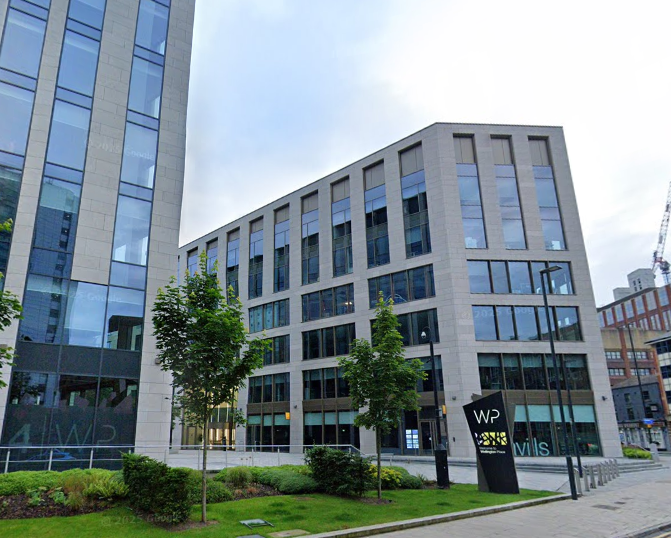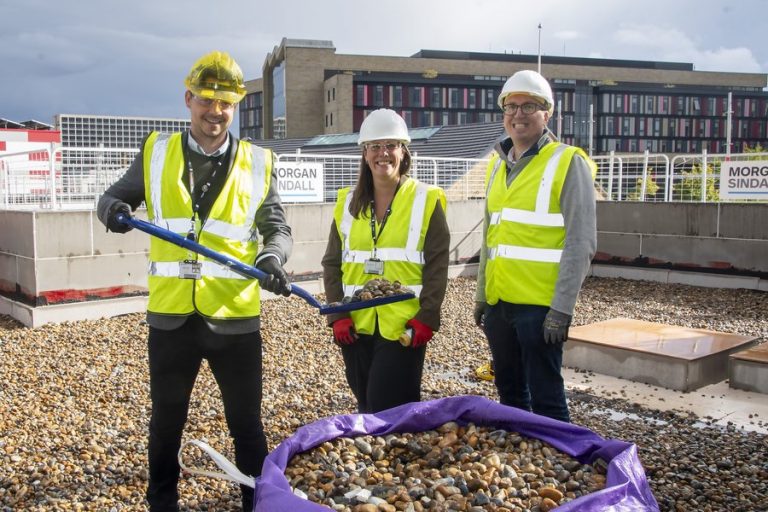MD Law solicitor unveiled as new president of Sheffield and District Law Society
Business leaders urged to grab a bag as CEO Sleepout comes to Sheffield
Hull packaging manufacturer snapped up by global group
European IT consultancy moves 300-strong Leeds team to Wellington Place
Work starts on £7.9m affordable homes project in Sheffield
SLC commissioned to develop Penistone Line business case
Kirklees Council has appointed rail consultancy SLC to prepare the Outline Business Case for improvements on the Penistone Line, which runs between Huddersfield and Sheffield. The line serves major towns and smaller stations across South and West Yorkshire, providing access to employment, education, and leisure facilities.
The business case will examine infrastructure upgrades, including faster trains, track doubling on the northern section to allow two trains per hour in both directions, and station modernisation to enhance accessibility and passenger experience. Proposed improvements align with the wider Transpennine Route Upgrade, which aims to improve services between Huddersfield, Manchester, and York.
The initiative forms part of Kirklees Council’s strategy to strengthen regional connectivity, support economic growth, and improve transport reliability. The upgrades are expected to enhance travel times, increase service frequency, and create opportunities across education, employment, and local services.
Coders Guild opens Lincoln hub to tackle local digital skills shortage
The Coders Guild has launched a new training centre at the Mosaic Digital Hub in Lincoln, providing businesses and professionals with access to digital skills development, including software development, artificial intelligence, project management, and cyber security.
Lincolnshire faces a significant digital skills shortage, with research indicating up to 85% of local businesses struggle to recruit qualified staff. Nationally, nearly half of UK companies report difficulties hiring employees with strong digital and data expertise, creating challenges for keeping pace with technological change. The new hub aims to support local firms in bridging these gaps and building adaptable, future-ready teams.
The Coders Guild is offering part-government-funded training programmes for Lincolnshire-based businesses. A Cyber Security Skills Bootcamp covers everyday cyber security practices, emerging digital threats, and practical defence strategies, with funded places available for eligible participants. An AI & Automation Bootcamp provides hands-on training in automation tools such as ChatGPT, Make, and Zapier, enabling participants to design efficient workflows and improve operational productivity over a 12-week course.
Both initiatives target business owners, freelancers, and self-employed professionals, offering practical skills to strengthen digital capability across the county.
Key milestone reached at £19.3m Bradford College development
The college event celebrated the highest point of the building’s structure being put in place, signalling the next phase of work to create a cutting-edge training facility for automotive, digital, and engineering skills.
Set to open its doors to students in 2026, the four-storey building has been backed by £17.8m from the Department for Education Further Education Capital Transformation Fund (FECTF) and a £1.5m College contribution.
Dan Marsh, Morgan Sindall’s project manager on the scheme at Bradford College, said: “Bradford College and Morgan Sindall have formed an excellent relationship through working tirelessly in collaboration to get this far, and we intend to cement this by bringing the project to a close on time, on budget, and with excellent quality.”
Once completed, the Bradford College Automotive and Digital Engineering Department will relocate from Bowling Back Lane to the premises, with as many as 650 students potentially enrolling at the Centre.
Junction Mills will offer skills in new technologies, such as modern automotive and digital engineering, electric/hybrid vehicles and advanced manufacturing. The Centre will be vital in supporting the growth of technology and low-carbon skills capability within West Yorkshire.
Stephen Smith, head of engineering & motor vehicle at Bradford College, said: “I’m absolutely thrilled to see our new hi-tech home for Motor Vehicle reaching this exciting topping-off milestone. This is a huge step forward for both staff and students, and I can’t wait to see the opportunities it creates.
“This new facility will give our staff access to the very best resources, enabling them to deliver even more innovative and industry-relevant teaching. For our students, it means learning in an environment that mirrors modern workshops and garages, giving them the hands-on experience and confidence they need to thrive in their future careers.”
CPP Group to close Leeds office
CPP Group has announced a reorganisation of its leadership team and a set of cost reduction measures which it says are “designed to streamline the Group and align overheads with the Group’s new size and focus.”
It follows the completion of a Change Management Programme (CMP) and the disposals of CPP Turkey and CPP India.
Simon Pyper is set to step down as CEO and will assume the role of chief financial officer & managing director of legacy operations. He is expected to leave the Group during 2026.
David Bowling (chief financial officer) and Eleanor Sykes (chief operating officer), meanwhile, will step down from the board and their executive roles but will continue, in a non-executive capacity, with responsibilities for Homecare Insurance Limited, the Group’s captive run-off insurance business. They will oversee its operations and orderly closure.
Brian Barter has been appointed CEO of Blink, the Group’s parametric InsurTech business, and will join the Group board.Making significant cost reductions, the business is lowering Board costs, closing the Leeds office, and making other central savings.
The various actions taken by the Group in recent years is expected to see central costs come down from £10.1m in 2023 to a run rate in the region of £2.5m per year, following the most recent round of cost cutting.David Morrison, chairman, said: “This reorganisation simplifies and streamlines the Group’s senior management structure, reducing aggregate central cost whilst focusing on the requirements of Blink and the management of the legacy operations.
“On behalf of the Board, I would like to thank Simon, David and Eleanor for their outstanding service and contribution to the Company. Simon took over as CEO early in 2022 and has been responsible for instigating and executing the strategy that has led to the exit from the legacy holdings in Turkey and India and refocusing the Group on Blink.
“David played a critical role in the financial management of the Group in the same period and for executing the Group’s legacy disposals, including those most recently in Turkey and India, and Eleanor has made a noteworthy contribution to the operational effectiveness of all aspects of the Group.
“In the period in which they have been in their respective roles, the Group has been transformed in terms of strategic clarity and objectives and operational discipline, and I am pleased that each of them will continue, in different capacities, to be involved with the Group for a while to come.
“On a personal note, I would like to record my thanks to each of them for the role that they have played and to wish them every success in the future.”
Grants awarded to eight Leeds projects driving growth and innovation through training and support
- Unity Property Services, which will offer workshops, mentoring and networking events for pre-start, early-stage and established businesses, with a focus on empowering members of disadvantaged and underrepresented communities in Leeds;
- Trust Leeds, which will run a programme of enterprise support – covering areas such as financial literacy and marketing – that aims to help entrepreneurs, particularly women, start and develop viable micro-businesses;
- Future Transformation, which will deliver AI workshops and youth innovation bootcamps as well as ‘challenge labs’ where participants will co-create tech-driven solutions to environmental issues;
- Come Play With Me, which will seek to strengthen Leeds’ music sector infrastructure by running a training and mentoring programme for creative entrepreneurs, especially those from marginalised communities;
- Startling, which will offer practical and personalised innovation guidance and business support via a combination of peer-to-peer learning, one-to-one mentoring and themed masterclasses;
- SHINE, which will give expert business advice to female entrepreneurs through a programme of workshops, mentoring and networking as well as the use of a new AI-enabled community platform;
- Offploy, which will provide support such as business skills training and e-learning access to people who might otherwise face barriers – like long-term joblessness or mental health challenges – on their route to traditional employment;
- FinTech North, which will run a programme of mentoring, peer-led learning and leadership development for underrepresented entrepreneurs and early-career professionals, with an emphasis on financial technology and adjacent sectors.












